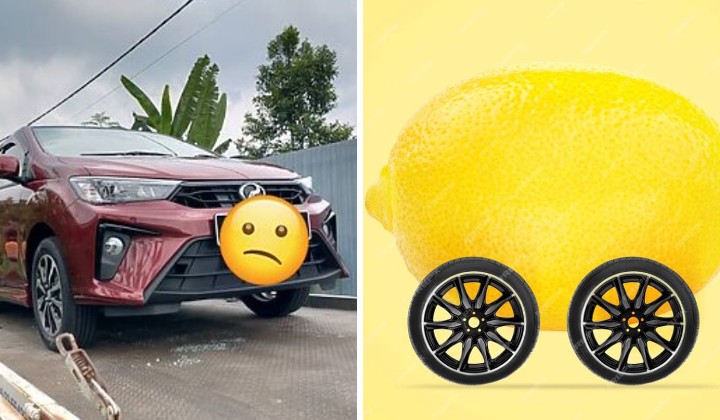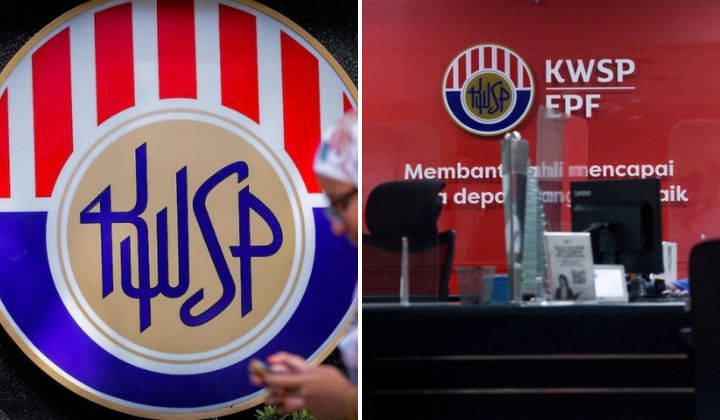Malaysia Needs Lemon Law Amid Surge In Defective New Cars
A lemon law would increase consumer confidence and trust in the automotive market by establishing clear guidelines and procedures for addressing defective vehicles.

Subscribe to our FREE Newsletter, or Telegram and WhatsApp channels for the latest stories and updates.
As the number of reported cases of defective new cars continues to rise, consumer advocates and industry experts are calling for implementing a lemon law in Malaysia.
The surge in complaints about new vehicles with persistent issues has prompted concerns about consumer protection and the need for legal recourse for affected buyers.
In recent months, numerous incidents have come to light where consumers have faced significant challenges with newly purchased vehicles.
For instance, a recent case of an SUV breaking down just minutes after leaving the showroom has underscored the need for stronger consumer protection measures.
Honda Malaysia masih senyap kereta baru keluar kilang dah rosak & tak tau rosak apa. Honda City and Honda CRV. I think Honda Civic pun ada pasal aircond bocor.
— Faris|K (@_kesatria) January 18, 2024
At least Perodua terus keluar PS.
These issues range from mechanical and electrical problems to safety concerns, leaving many buyers frustrated and disillusioned with their purchases.
The lack of effective mechanisms to address these issues has led to growing calls for a lemon law to provide consumers with greater protection and options for recourse.
In response, the government is currently in the early stages of reviewing and investigating the possibility of implementing a lemon law.
Datuk Armizan Mohd Ali, the Minister of Domestic Trade and Consumer Affairs, told FMT that Malaysia is actively addressing consumer protection issues related to defective vehicles and analyzing international practices before adapting them for local use.
He commented on the Consumers Association of Penang (CAP) call to introduce a lemon law.
READ MORE: Perodua Denies Ignoring Complaint Of Bezza Breaking Down After 8 Hours
Proposed Lemon Law: Empowering Consumers and Ensuring Vehicle Safety
A lemon law, if implemented, would offer consumers the right to seek a refund or replacement for a new vehicle that exhibits substantial defects affecting its safety, use, or value.
It would also establish clear guidelines for manufacturers and dealerships to address consumer complaints in a timely and transparent manner.
Additionally, it would require manufacturers to make a reasonable number of attempts to repair the vehicle before it can be considered a “lemon,” providing consumers with legal grounds for resolution.
The need for a lemon law in Malaysia will likely gain momentum as consumer rights organizations and legal experts emphasize safeguarding consumers from being burdened with faulty vehicles.
The next step will be for industry stakeholders to express support for implementing a lemon law, acknowledging its potential benefits to consumers and the automotive industry.
The public will no doubt be hopeful that the government will seriously consider this important consumer protection measure in response to the recent cases of defective new cars.
From Sour to Sweet: The Evolution of Lemon Law and Consumer Protection
The term “lemon” used in the context of “lemon law” comes from American slang, where a “lemon” refers to a defective or unsatisfactory item, especially a car.
The term in this context can be traced back to the early 20th century when it was used to describe defective or unreliable cars.
Over time, the term became associated with consumer protection laws for defective vehicles, leading to “lemon law.”
Lemon laws exist in all 50 states in the United States, including a federal law known as the Magnuson-Moss Warranty Act.
The specifics of lemon laws vary from state to state, but they generally outline the rights of consumers, and many cases have been filed.
Consumers are entitled to receive a refund or replacement vehicle if their newly purchased vehicle has substantial defects that cannot be repaired after a reasonable number of attempts.
Consumer Protection Act: Safeguarding Consumer Rights and Lemon Law Implementation
In Malaysia, the Consumer Protection Act (CPA) came into force in 1999, marking a significant step forward in safeguarding consumer interests.
This Act facilitates individuals in addressing grievances by approaching the Consumer Redressal Tribunal for claims up to RM50,000.
Report je ke @KPDN_HQ or buat tuntutan kat tribunal tuntutan pengguna as long as loan tak lebih 50K. https://t.co/z8VnSK9sGp
— Saqah 🇲🇾 (@MaisarraAnuar) January 2, 2024
The CPA enshrines several key consumer rights:
- Access to fundamental necessities such as food, clothing, healthcare, education, and housing.
- Protection against hazardous products, services, and manufacturing practices.
- Entitlement to truthful information regarding products or services.
- Assurance in purchasing goods or services at fair prices through legitimate channels.
- The right to pursue reparations for any unjust practices by providers or manufacturers.
Introducing a lemon law would further reinforce these protections, especially for those purchasing vehicles.
Share your thoughts with us on TRP’s Facebook, Twitter, and Instagram.





